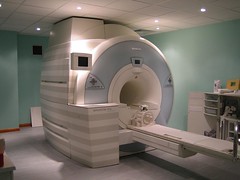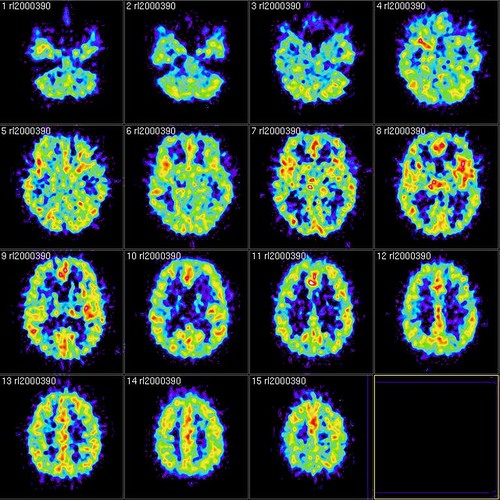 When most of us picture someone being diagnosed with a mental disorder, the examination we imagine is question based-a soft interrogation of sorts.
When most of us picture someone being diagnosed with a mental disorder, the examination we imagine is question based-a soft interrogation of sorts.
With other types of health issues people are normally poked and probed, drained of fluids, tested and retested. But mental heath care has almost none of the facets of traditional medical diagnostics. This could all change in less than twenty years.
For decades now the only way to know if someone was mentally ill was to either ask the person how they felt or simply observe behavior that is considered abnormal.
For the first time psychiatrists are attempting to harness technology to get a clearer picture of what the problem is and how to solve it. Even today diagnosing mental illness is based on a cluster of symptoms, but it could one day be based on how your brain functions.
Brain SPECT imaging (single photon emission computed tomography) is a type of nuclear medicine that allows doctors to literally see blood flow to different parts of the brain. Similar to an MRI, the patient is placed in a cylindrical contraption that creates 3D images of the brain. These images can then be examined to determine if your brain is working properly.
According to Dr. Daniel G. Amen, one of the best known supporters of the technology, "psychiatrists are the only medical specialists who rarely look at the organ they treat". Proponents of the technology like Dr. Amen say that Brain SPECT imaging can help to produce more accurate diagnosis and create tailored treatments for individual patients.
Brain SPECT imaging is not without its critics, however. Dr. Harriet Hall of Quackwatch.org has said that "it is natural to be enthusiastic about new imaging or treatment procedure, but initial promises are not always fulfilled. If Dr. Amen’s method is not as good as he thinks, he is subjecting patients to unnecessary radiation and expense ($3,000); if it is as good as he thinks, his lack of rigorous research is postponing the day when it will be generally recognized and offered to everyone and paid for by insurance".
Brain SPECT imaging like Dr. Hall pointed out is not the norm in diagnosing neurological or psychiatric ailments. It is still only used by a hand full of psychiatrists in the U.S. and it’s merits are still being hotly debated. Nonetheless Brain SPECT is not all bad, as a panel of neurolgist suggested in 1996 . More than ten years later however, the debate still leans against the use of Brain SPECT to diagnose mental ailments.

![]() photo credit: Reigh LeBlanc
photo credit: Reigh LeBlanc
So, it’s rather easy to see how SPECT imaging would work great for evaluating organs like the heart or kidneys, but does seeing blood flow in the brain indicate abnormality with respect to mental illness? In others words, when it comes to anxiety disorders and other mental ailments, does Brain SPECT technology really explain it?
For now I will reserve judgment because only time will tell if Brain SPECT will help patients with mental illness. It seems that for the foreseeable future Brain SPECT imaging will remain in its infancy when it comes to diagnosing mental conditions.
This is why "the American Psychiatric Association and the American Academy of Neurology do not recommend the clinical use of neuro-imaging in the diagnosis of psychiatric conditions as studies do not yield evidence in support of practical clinical applications" (reference ).
Although Brain SPECT is far from receiving the medical establishments proverbial thumbs up, in the end I think it’s a good thing. Good because at least there are some people trying something new. And if this particular technology doesn’t yield results, maybe something born from it will.





Leave a Reply